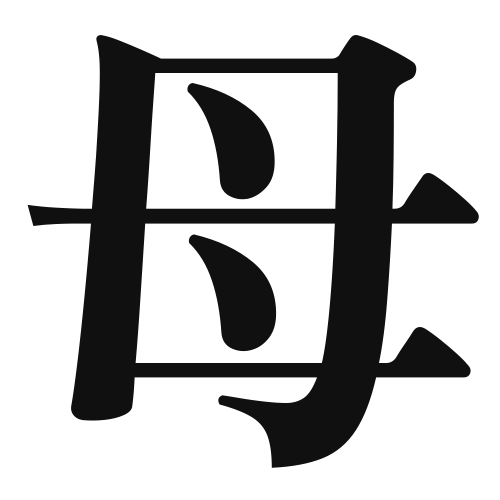1. Overview of Meaning
The kanji “母” (pronounced “haha” or “bo”) means “mother” in Japanese. It represents the concept of motherhood and is often associated with nurturing, care, and family.
2. Formation and Radical
Formation of the Kanji: The kanji “母” is a pictogram that originally depicted a woman with a child. It belongs to the category of ideograms, as it conveys the idea of a mother through its shape.
Radical: The radical for “母” is also “母,” which is used in other kanji related to motherhood and family.
3. Examples of Usage
Common Words and Phrases: Some frequently used words that include “母” are:
- 母親 (ははおや, hahaoya) – mother
- 母国 (ぼこく, bokoku) – motherland
- 母音 (ぼいん, boin) – vowel
Example Sentences in Daily Conversation:
- 私の母は料理が上手です。 (わたしのはははりょうりがじょうずです。) – My mother is good at cooking.
- 母の日には花を贈ります。 (ははのひにははなをおくります。) – I give flowers on Mother’s Day.
4. Synonyms and Antonyms
Similar Kanji: A similar kanji is “親” (おや, oya), which means “parent.” While “母” specifically refers to the mother, “親” can refer to either parent.
Antonyms: The antonym of “母” is “父” (ちち, chichi), which means “father.” This represents the male counterpart in the parental relationship.
5. Cultural and Historical Background
Relation to Japanese Culture: In Japanese culture, mothers are often revered and play a central role in family life. The concept of “母” is deeply embedded in various traditions and values.
Proverbs and Idioms: One common proverb is “母の愛は海より深い” (ははのあいはうみよりふかい), which translates to “A mother’s love is deeper than the ocean,” highlighting the profound love and sacrifice of mothers.
